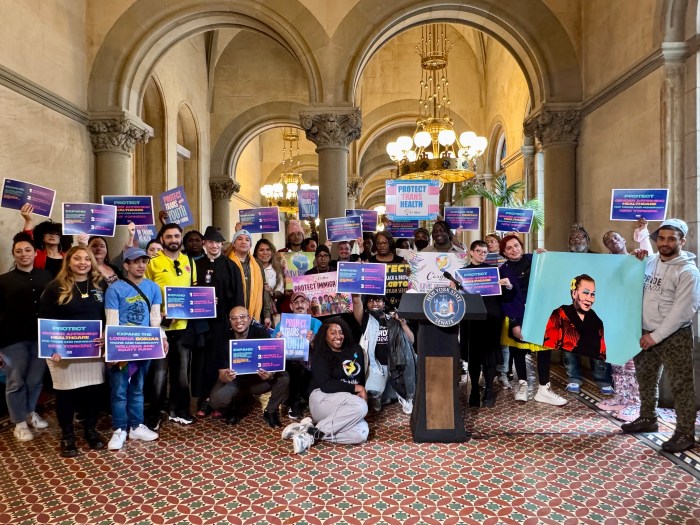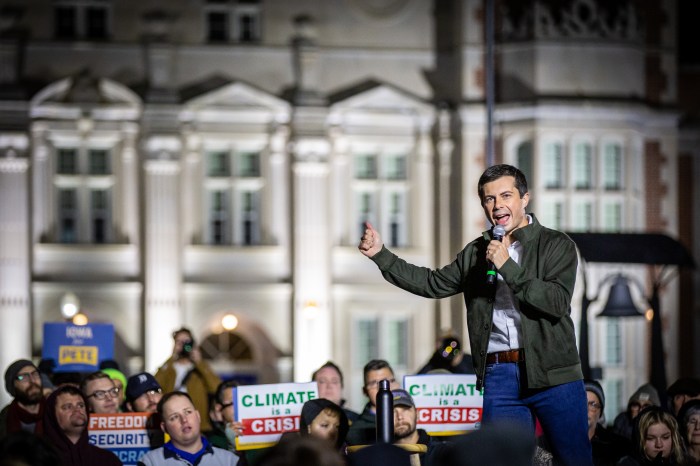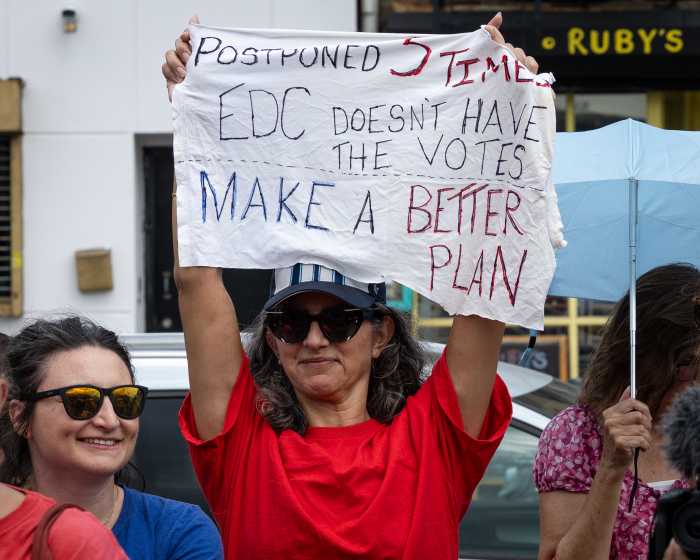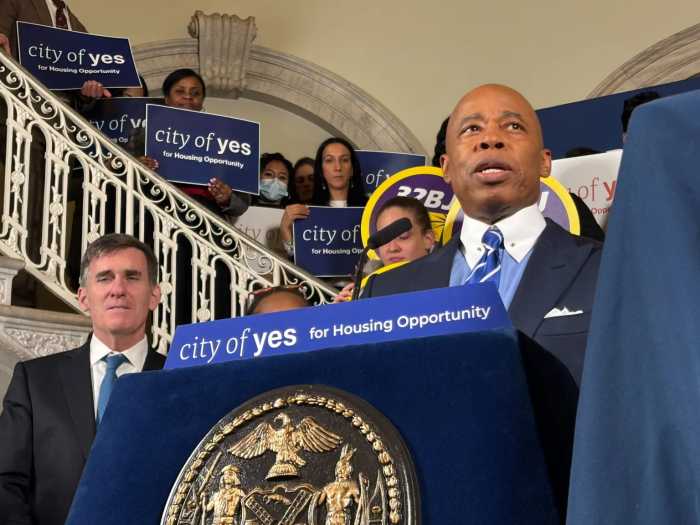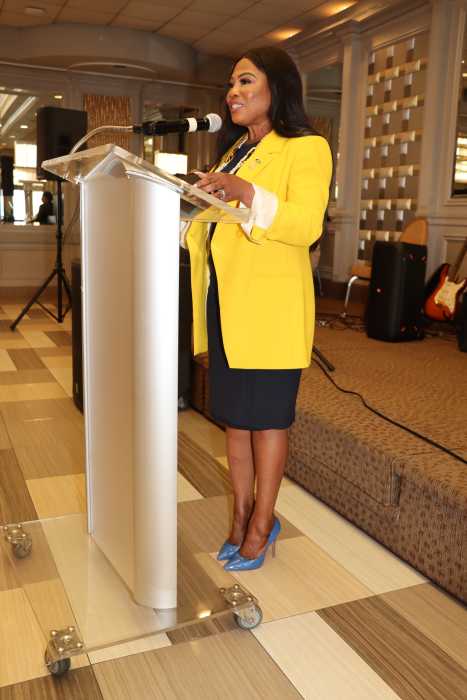BY PAUL SCHINDLER | New York State's Working Families Party on June 11 announced its support for marriage equality for same-sex couples.
The WFP, for the past decade, has used its endorsements and its political and public education efforts to move the two major parties – principally the Democrats – toward stronger support of issues of concern to organized labor and working class New Yorkers generally.
The announcement comes after several years of growing support among the labor movement for equal marriage rights. In 2006, three of the city's most prominent union leaders – Randi Weingarten of the United Federation of Teachers, Dennis Rivera, who at the time headed up the Service Employees International Union (SEIU) Local 1199, and Bruce Raynor, who helms UNITE HERE – announced their unions' endorsement of gay marriage.
Labor-focused NYS party endorses equality for gay, lesbian couples.
The state Democratic Committee endorsed a pro-marriage resolution as early as September 2003 – and of course both Governor David A. Paterson and the overwhelmingly Democratic State Assembly have acted to make marriage equality a reality here.
Dan Cantor, executive director of the WFP, acknowledged that many political players in the state had moved earlier on the issue.
“I'm a little embarrassed that we are only now at last at the table, but only a little embarrassed,” he said, noting that the endorsement came after a unanimous vote of the party's executive committee.
By way of context, Cantor explained that at the time of the party's founding ten years ago, it was focused narrowly on economic and social justice issues directly related to working people, but had the active support of LGBT leaders, including State Senator Tom Duane and City Council Speaker Christine Quinn. Only over time has the party incorporated other progressive concerns into its formal agenda – a woman's right to choose, Rockefeller drug law reform, and opposition to nuclear power among them.
The WFP was already on record prior to June 11 in opposition to the federal marriage amendment that President George W. Bush pushed several years ago to shut down completely the marriage equality movement across the nation.
“There's now a broad consensus throughout the Northeast and particularly in New York that marriage is a civil right that should be available to all couples, gay and straight,” Cantor said.
Still, the potential complications the WFP faces in trying to build influence in all regions of the state as it embraces marriage equality was illustrated in the recent State Senate special election in the Watertown area in New York's northeastern corner. The party backed Darrel Aubertine, a Democrat who in the Assembly last June voted against the marriage equality bill. Aubertine's Republican opponent was also against gay marriage, and the WFP along with many progressive groups saw the ability to inch closer to Democratic control of the State Senate as the key issue in the race.
Marriage equality advocates agree that the bill passed last year in the Assembly will not move under the current Republican Senate leadership.
Cantor emphasized that the party does not treat all of its issues as litmus tests for endorsing a candidate, but said that if an issue is a live question – as marriage equality is in the State Senate – the position of a politician seeking the WFP's nod becomes more important.
For that reason, he said, marriage equality is likely to be included in future candidate questionnaires for state legislative hopefuls. This past spring's questionnaires, at both the state and federal level, included no questions related to LGBT or AIDS issues.
Cantor gave credit to the Empire State Pride Agenda (ESPA), the statewide LGBT lobby, for keeping the issue at the forefront of his mind.
“They didn't push hard,” he said, “but Alan [Van Capelle, ESPA's executive director] would say, 'The WFP needs to do this' every time I would see him.”
Earlier this spring, Cantor invited Van Capelle to make a presentation to the party's executive committee. Van Capelle worked for SEIU 32BJ prior to going to ESPA and sat on the WFP executive committee for five years.
“He did a great job,” Cantor said of Van Capelle's bid to the executive committee.
Van Capelle confirmed that the invitation to speak to the party's leaders “came out of the blue,” and explained that ESPA's efforts to gain support in the ranks of labor were initially focused on union members themselves.
“If you build support in the rank and file,” he said, “then when you go to union leadership, they are not only accountable to you, but more importantly to their members.”
Van Capelle said the WFP's support is particularly critical as ESPA and other advocates step up their efforts in the State Senate. The Pride Agenda, he explained, has long had a strong relationship with the Assembly Democratic leadership, but with the Senate Democrats so long in the minority, the group's opportunities for testing the depth of their support for LGBT issues have been more limited.
“Now it's very important for the WFP to be part of this effort,” Van Capelle said.



